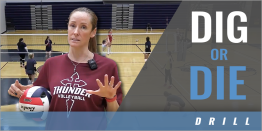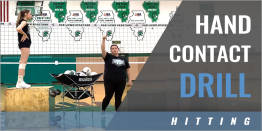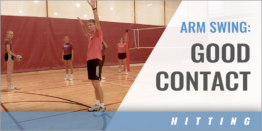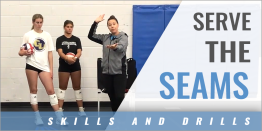|
By: Darlene A. Kluka, Ph. D., D Phil, Barry University, Department of Sport and Exercise Sciences and JGU van Wyk, Ph. D., University of Pretoria, South Africa, Department of Biokinetics, Sport and Leisure Sciences Originally published in: Coaching Volleyball Magazine Provided by: American Volleyball Coaches Association (AVCA)
Codes of Behavior of USA Volleyball as well as the Coaching Code of Ethics of the United States Olympic Committee mandate the need for professionals in coaching who will consistently maintain and improve professional knowledge and competence, striving for professional excellence through regular assessment of personal and professional strengths and limitations and through continuing education. Although coaching is not an officially registered profession in the United States, the need for standards in coaching is universally accepted (ICCE, 2007; NASPE, 2009). Through regular self assessment of strengths, limitations, effectiveness and efficiency, coaches can build an ethical and professional coaching framework in the volleyball team environment. Maintaining, improving and demonstrating professional excellence through two means, self-assessment and continuing education, are paramount to successful coaching and positive athlete experiences. The Need for Self-Evaluation The discussion about the purpose of self-evaluation begins with asking what might happen if a coach does not go through the process of assessing and evaluating strengths and limitations. Frequently a lack of self-awareness and self-knowledge results in violations of ethical boundaries. The vulnerability to ethical violations can be successfully addressed by knowing personal strengths and limitations. Then coaches can choose personal growth and improvement resources. It also allows choice of continuing education that supports strengths and addresses limitations. Meeting Individual Needs Everyone has needs and vulnerabilities, whether they are related to current life events or to past history. Whether coaches are aware of these needs and vulnerabilities or not, they affect daily life, behavior, decision making, and interactions with others. If coaches are self-aware, they can be intentional about where, how, and with whom needs are met and vulnerabilities are addressed. If coaches are unaware, it is possible that they may look for these needs and vulnerabilities to be taken care of at inappropriate times and in inappropriate ways. Specially, if coaches knowingly (or unknowingly) use relationships with team members to satisfy personal needs, coaches will certainly overstep ethical boundaries. Personal Strengths and Limitations There are personal strengths that will support a health relationship with team members. These include characteristics such as genuine liking for people, the ability to actively listen, reliability and trustworthiness. Being confident and well-grounded in who one is and what one can do, without being arrogant, allows the opportunity for relationship building. Knowing personal strengths boosts confidence in abilities to effectively relate to team members in a way that will be growth-producing to all. It also helps to identify the gifts one has to offer coaching and the professional coaching organizations in which coaches participate. Professional Strengths and Limitations Assessing professional strengths and limitations allows coaches to know where their best skills are as field-based professionals. This helps the identification of specialty areas in which coaches might want to focus within the team organization. This assessment will also identify areas of limitations. Coaching through limitations rather than strengths opens coaches up to not only the possibility of ethical violations, but also to the possibility that they will harm rather than enhance the team. If limitations are known, how to adjust management accordingly becomes available. Coaches will also know where to focus continuing education to help eliminate limitations and turn them into strengths. Types of Personal Vulnerabilities Personal neediness can make a coach vulnerable to ethical violations. There are some danger sign and symptoms of vulnerability that are important to identify. These include burnout, insecurity, need for control, personal life crisis, stress, limited social/sexual outlets, and unexamined personal fears or desires.
This has been a discussion of the process of self-evaluation and building an ethical framework. Some of the areas that cause vulnerability to ethical violations have been presented. Most overstepping of ethical boundaries is done unintentionally. Lack of knowledge and self-awareness can be what ultimately leads to ethical violations. The self-evaluation process discussed should help protect the coach against vulnerability to violations of professional ethical boundaries. The result should be a much clearer picture of who the coach is and how the coach can best serve team members, the community and the profession. From this, the coach can develop a plan of action that will permit the continuation to reach and even surpass, both personal professional potential.
References... Greene, E., Goodrich-Dunn, B. (2004). The psychology of the body. Philadelphia, PA: Williams & Wilkins. International Council of Coach Education (ICCE). (2007) Code of Ethics. Retrieved June 4, 2009 from www.icce.org NASPE. (2008). Coaching standards. Retrieved June 4, 2009 from www.aahperd.org Taylor, K. (1995). The ethics of caring. Santa Cruz, CA: Hanford Mead. United States Olympic Committee (USOC). (2006). Code of Ethics. Retrieved June 4, 2009 from www.usoc.org USA Volleyball (USAV). Codes of Behavior. Retrieved June 4, 2009 from www.usav.org
|







